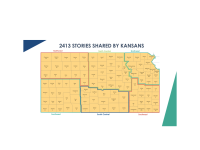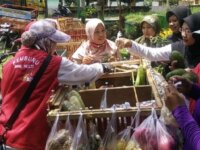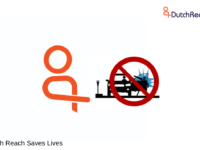The Ministry of Possibilities is a virtual ministry created to incubate and solve the systemic impossibilities of government.
It works by creating time-bound departments experimenting together to ask impossible questions and disrupt the conventional systems with leapfrog solutions that are yet to be explored
Its focus areas & mandate are:
To IDENTIFY impossibilities
To INCUBATE virtual, timebound departments/teams to solve and explore the impossibilities
To EDUCATE and train on the mindset of…
Innovation Tag: Citizen Engagement
Who gets to set the direction of travel has been identified as a key concern of challenge led policy. Utilising an online crowdsourcing tool, the challenge prize Solution 100 provided a novel approach to addressing this question. By crowdsourcing the challenge formulation, the competition organisers built legitimacy for the prize along with a deep understanding of the challenge that was to be addressed. The chosen method combined knowledge gained through crowdsourcing and expert panels.
What if you were given $100 that you could use to support local candidates of your choice running for office in your community? In Seattle, more than 480,000 residents were given four $25 vouchers they could give to candidates running for local office. The goals of the program are to increase the number of residents donating to local campaigns and to encourage residents to run for local office.
Learning Together for Better Public Engagement (Learn4PE) was a pilot initiative designed to build public engagement capacity across the Government of Canada. In its first iteration, participants spent five weeks learning together in English and French, both online and by participating in live sessions with experts. While targeted towards federal public servants, registration was open to all, enabling the exchange of relevant ideas and resources.
Informed Participation is a unique way to bring the public into government decision making. It gives government a method to solve complex issues with the public in a way that gives them a meaningful role in balancing competing interests. Public policy is becoming increasingly complex and trust in government is declining, so new innovative ways of engaging with citizens is needed. This method shifts engagement from obtaining buy-in to building ownership and creates more legitimate solutions.
New products and new ways of working are needed in order to meet the future challenges in healthcare.
The ability of healthcare professionals to create and innovate new products and working methods is however underutilized. Närhälsan Färgelanda, Primary Health Care Centre, has launched an innovation project in collaboration with private companies that aims at empowering healthcare professionals to create, innovate and develop new products and working methods that meet the future needs.
Case Study
Using behavioural insights to increase patient engagement with validation of hospital waiting lists
Administrative validation of waiting list is where patients are contacted by hospitals in writing to confirm if they still require hospital care or wish to be removed from a waiting list. Many patients do not reply to validation letters. This innovation involved a collaborative redesign of the validation letter, the application of a range of behavioural insights to letter design and testing through a randomised control trial.
The State of Kansas piloted ‘Our Tomorrows,’ a novel framework to capture family experiences about thriving and surviving, to ensure that policies and practices meet the needs of families. The approach makes a large amount of data (over 2,500 narratives) directly accessible to decision-makers and the individuals who provided it. Communities make sense of patterns that emerge from stories to create a portfolio of small actions that will make Kansas the best place to raise a child.
In Banyuwangi of Indonesia, one of the districts in East Java, 16 pregnant women died in 2015, as well as 28 babies. The largest contributing factor was a lack of data concerning the existence and whereabouts of women with high-risk pregnancies. So, in 2016, Sempu Public Healthcare Center launched an innovative solution using female vegetable sellers on motorbikes as high risk pregnancy seekers. As a result, the number of women and babies dying during and/or shortly after childbirth fell to…
Dutch Reach Project (DRP) closes a serious gap in existing road safety efforts to prevent “dooring,” a common, feared & at times fatal crash caused when exiting motorists - using their near hand - suddenly throw open their car door into the path of a bicyclist or other vulnerable road user (VRU).
To prevent dooring, DRP promotes the Dutch Reach (DR): reaching across to the door with the far hand to open - a much safer method.
The DR project is already gaining increasing attention and being…




